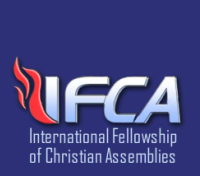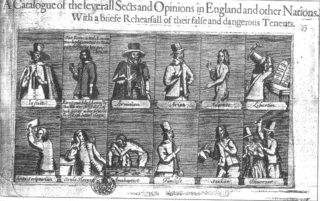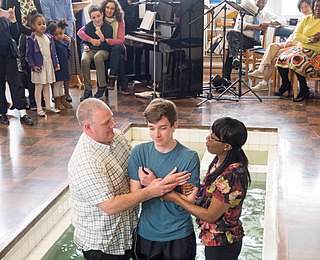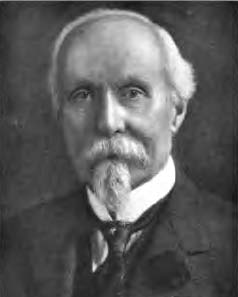Church of God is a name used by numerous denominational bodies. The largest denomination with this name is the Church of God

In ecclesiology, the Christian Church is what different Christian denominations conceive of as being the true body of Christians or the original institution established by Jesus. "Christian Church" has also been used in academia as a synonym for Christianity, despite the fact that it is composed of multiple churches or denominations, many of which hold a doctrinal claim of being the "one true church", to the exclusion of the others.

The International Fellowship of Christian Assemblies (IFCA), formerly known as the Christian Church of North America (CCNA), is a North American Pentecostal denomination with roots in the Italian-American community. Central offices are located in Transfer, Pennsylvania. Ministries of the church include Benevolence, Home Missions, FOCUS, Foreign Missions, Education, Lay Ministries, and Public Relations. A convention is held annually, and their official publication is Vista, a quarterly magazine.

In the Book of Ezekiel in the Hebrew Bible, New Jerusalem is Ezekiel's prophetic vision of a city centered on the rebuilt Holy Temple, the Third Temple, to be established in Jerusalem, which would be the capital of the Messianic Kingdom, the meeting place of the twelve tribes of Israel, during the Messianic era. The prophecy is recorded by Ezekiel as having been received on Yom Kippur of the year 3372 of the Hebrew calendar.

English Dissenters or English Separatists were Protestant Christians who separated from the Church of England in the 17th and 18th centuries.
The Pacific School of Religion (PSR) is a private Protestant seminary in Berkeley, California. It maintains covenantal relationships with the United Church of Christ, the United Methodist Church, and the Disciples of Christ, ensuring the school provides the necessary requirements for candidates to seek ordination within these denominations. These three denominations account for approximately half of the student population of PSR. The school has also maintained close relationships with the Unitarian Universalist Association, the Universal Fellowship of Metropolitan Community Churches, the African Methodist Episcopal Church, as well as other denominations. Over the years PSR has provided training for clergy and leaders from a wide range of religious traditions including Buddhists, Jews, Pagans, Pentecostals, and Roman Catholics.

Bryn Athyn Cathedral is the episcopal seat of the General Church of the New Jerusalem, a denomination of Swedenborgianism. The main building is of the Early Gothic style, while the adjoining structures are of a transitional period reflective of a combination of both Gothic and Norman styles. The exterior appearance of the cathedral itself is reminiscent of Gloucester Cathedral in England.
The Swedenborgian Church in North America is one of a few Christian sects that draws its faith from the Bible as illuminated by the teachings of Emanuel Swedenborg (1688–1772). The Administrative Offices of the denomination are located at 50 Quincy St., Cambridge, Massachusetts.

The General Church of the New Jerusalem is an international church based in Bryn Athyn, Pennsylvania, and based on the Old Testament, the New Testament, and the theological works of Emanuel Swedenborg. The General Church of the New Jerusalem distinguishes itself from other Swedenborgian churches by teaching that the Writings for the New Church are the Heavenly Doctrine revealed by the Lord in His Second Coming and have authority equal to the Old and New Testaments. It is larger, newer, and more conservative than the Swedenborgian Church of North America.
New Church Education is a philosophy of education developed and practiced by the General Church of the New Jerusalem, one of the New Church or Swedenborgian sects. This philosophy is based on some of works of Emanuel Swedenborg, whose theological writings are considered by members of this church to be the revealed Word of God, equal in authority to the Old Testament and the New Testament.

The New Church is any of several historically related Christian denominations that developed as a new religious group, influenced by the writings of scientist and mystic Emanuel Swedenborg (1688–1772).

Baptist beliefs are not completely consistent from one church to another, as Baptists do not have a central governing authority. However, Baptists do hold some common beliefs among almost all Baptist churches.

The Church of the New Jerusalem is a historic Swedenborgian church at 50 Quincy Street, Cambridge, Massachusetts, near Harvard University. It was added to the National Register of Historic Places in 1983.

John Pitcairn Jr. was a Scottish-born American industrialist. With just an elementary school education, Pitcairn rose through the ranks of the Pennsylvania railroad industry, and played a significant role in the creation of the modern oil and natural gas industries. He went on to found the Pittsburgh Plate Glass Company, an early industry innovator which quickly grew into the largest manufacturer of plate glass in the United States, and amassed one of the largest fortunes in the United States at the time.
William Frederic Pendleton was the first Executive Bishop of the General Church of the New Jerusalem, in Bryn Athyn, Pennsylvania.
The Lord's New Church Which Is Nova Hierosolyma, usually referred to as the Lord's New Church, is an international, Christian church based on the Old Testament, the New Testament, and the theological writings of Emanuel Swedenborg, which its members view as the Third Testament.

Horatio Willis Dresser was a New Thought religious leader and author in the United States. In 1919 he became a minister of General Convention of the Church of the New Jerusalem, and served briefly at a Swedenborgian church in Portland, Maine.

Samuel Noble (1779–1853) was an English engraver, and minister of the New Church (Swedenborgian).










